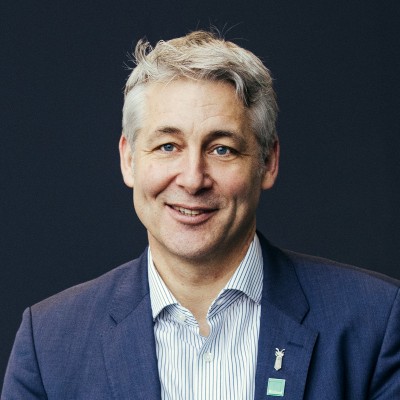Welcome note from our President

Dear reader,
As IFOAM Organic Europe’s President, it is my pleasure to welcome you to our 2022 annual report. It will provide you with insights into IFOAM Organics Europe’s activities transforming European food and farming over the year.
In 2022 we had the honour of celebrating our 20th anniversary as the umbrella organisation for the EU organic sector. Over these past 20 years, IFOAM Organics Europe – through the commitment of its members and office staff – has been doing a great job at helping make Europe more organic, and 2022 saw no exception in this regard.
2022 was marked by important developments in the policy arena, which brought both challenges and opportunities for the European organic sector. The war in Ukraine raised concerns about food security in Europe and was exploited by some to push for a rollback of the EU Farm to Fork targets. IFOAM Organics Europe remained resolute in opposing these attempts to weaken the Farm to Fork Strategy. Furthermore, we committed to ensuring the EU would remain on track for the target of 25% organic land by 2030. In the face of geopolitical challenges, we believe the war in Europe served as a stark reminder to shift towards healthier, socially responsible, and environmentally friendly farming practices such as agroecology, organic farming, and agroforestry.
2022 also saw the entry into force of the new organic regulation. IFOAM Organics Europe actively engaged in helping organic stakeholders navigate the legal complexities of the new regulation by providing an online guidance tool, the Regulation Guidelines, therefore leaving them free to focus on their core business activities.
In another policy development, the Commission launched a new proposal for the Sustainable Use of Pesticides regulation (SUR), setting targets to reduce pesticide use by 50% before 2030. Together with other NGOs, IFOAM Organics Europe proactively advocated against efforts to undermine the SUR and the idea that a reduction in pesticide use will lead to lower food security.
Our advocacy work also focused on the proposal to relax rules on the regulation of new genomic techniques as we were prominent in spreading awareness of the dangers of NGTs deregulation. One initiative I would like to point out is the organisation of the “GMO-Free Europe Event 2022” at the European Parliament together with Save Our Seeds, which gathered over 250 participants and 22 speakers. Deregulation of new GMOs would have dire consequences for the EU organic sector and harm the European citizens’ right to choose GMO-free food.
In another key achievement of 2022, IFOAM Organics Europe closely followed the implementation of the new CAP 2023-2027 to ensure the achievement of the Farm to Fork targets. Given this, we reviewed the national CAP strategic plans and underscored their shortcomings, particularly regarding their deficiencies in supporting organic farming. IFOAM Organics Europe remains resolute in advocating for a CAP that truly reflects the EU Farm2Fork ambitions and that will put us on track to reach the 25% organic land target by 2030.
Other notable policy developments in 2022 concerned seeds, textiles, climate, and biodiversity, sustainable food systems, and labels. In all of these, we ensured that the voices of the organic sector were heard in the EU policy arena, and we strived to have organics be recognised as part of the solution to many present challenges faced by the EU regarding food security, climate change, and sustainability.
I would also like to highlight our efforts in research and innovation for organic together with TP Organics, the European technology platform for organic food and farming. In 2022, TP Organics followed the development of two research and innovation partnerships on agroecology and sustainable food systems.
Finally, I cannot forget to mention our 20th anniversary event on 11 May, attended by over 100 people representing the EU organic chain. Among the attendees was Frans Timmermans, Executive Vice-President of the European Commission. In his address to the attendees, he underlined that the Commission’s commitment to the EU Green Deal to organic comes from their belief in its benefits for climate, environment, soil, biodiversity, animal welfare, and socio-economic development. It was truly rewarding to witness Mr. Timmermans supporting our vision, as he concluded his speech by calling on IFOAM Organics Europe to “Keep doing the good work you have been doing in the past years”, contributing to solving climate and biodiversity crises.
The above activities do not cover all we did in 2022, and I invite you to read more highlights in this report. I would like to thank all our members, sponsors, partners, and office staff for their incredible work and for bringing the organic vision closer to its realisation. You are an important part of Making Europe More Organic.
Organic regards,
Jan Plagge, IFOAM Organics Europe President